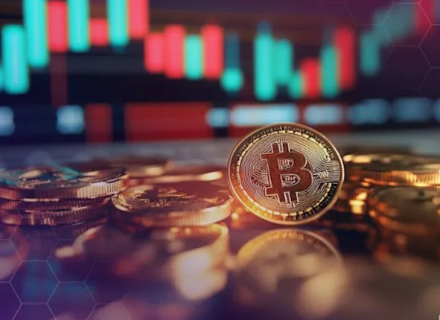Bitcoin News Today: Blockchain Bolsters Trust, Bitcoin Seeks a Place in the Philippines' Future
- Philippines launches blockchain document verification via Polygon to combat forgery and enhance public fund accountability. - DBM's system uses cryptographic hashes for real-time validation, developed with local firm Bayanichain. - House Bill 421 proposes 10,000 BTC strategic reserve over 20 years, aiming to diversify national assets with Bitcoin. - Dual initiatives reflect government's push for digital governance and economic resilience through decentralized technologies.
The Philippine government is exploring the use of blockchain technology to enhance transparency and accountability in public services, while some lawmakers are advocating for the integration of Bitcoin into national economic strategies. Two recent developments—introduced separately by different branches of the government—highlight the country’s growing interest in decentralized technologies.
The Department of Budget and Management (DBM) has launched a blockchain-based system to verify the authenticity of government documents using the Polygon network. The platform, announced on July 30, 2025, allows users to validate documents such as Special Allotment Release Orders and Notices of Cash Allocation through cryptographic hashes stored on the Polygon blockchain. The hashes serve as tamper-proof identifiers, enabling real-time validation without exposing confidential data. The system was developed in collaboration with Bayanichain, a local blockchain firm. DBM undersecretary Maria Francesca Montes Del Rosario emphasized that the initiative is part of the government’s broader commitment to integrating emerging technologies into governance [2].
The rollout was timed with a temporary disruption on the Polygon network caused by a technical issue with its Heimdall consensus layer. Despite this, the launch proceeded uninterrupted, and the validation system is now accessible via an official portal. Users can scan QR codes or enter reference codes to check the integrity of budget-related documents. The system is intended to combat document forgery and improve accountability in public fund allocation [2].
Meanwhile, a separate legislative proposal is being considered in the House of Representatives to establish a Strategic Bitcoin Reserve. House Bill 421, introduced by Congressman Miguel Luis Villafuerte, would require the central bank to accumulate 10,000 BTC over five years under a two-decade lockup period. The bill mandates annual purchases of 2,000 BTC and allows sales only for debt repayment after 20 years. If passed, the Philippines would become one of the first countries in Asia to formally legislate a sovereign Bitcoin reserve [1].
Villafuerte argued that the growing significance of Bitcoin makes it imperative for the country to take legislative action to bolster financial stability and national interests. The proposal has drawn mixed reactions from experts and industry figures. Miguel Antonio Cuneta of Satoshi Citadel Industries noted that the initiative could serve as an asymmetric advantage for the Philippines by diversifying its asset portfolio into a non-correlated, high-growth asset class [1].
However, the bill is expected to face legislative hurdles. Luis Buenaventura, head of crypto at GCash, expressed skepticism about the proposal’s passage but acknowledged its value in raising awareness of Bitcoin’s role in global treasuries. Despite the uncertainty, the bill reflects the Philippines’ broader interest in exploring innovative financial tools to enhance economic resilience [1].
The simultaneous pursuit of blockchain for document verification and Bitcoin for strategic reserves illustrates the Philippine government’s dual approach to modernization—leveraging decentralized technologies both for transparency and for economic diversification. As these initiatives progress, their success will depend on navigating technical, political, and economic challenges while aligning with broader global trends in digital governance and asset management.

Disclaimer: The content of this article solely reflects the author's opinion and does not represent the platform in any capacity. This article is not intended to serve as a reference for making investment decisions.
You may also like
Mars Morning News | SEC Expected to Issue "Innovation Exemptions" for the Crypto Industry in "About a Month"
The SEC is expected to issue an innovation exemption for the crypto industry. The UK "Digital Assets and Other Property Act" has come into effect. BlackRock's CEO revealed that sovereign wealth funds are buying bitcoin. Bank of America recommends clients allocate to crypto assets. Bitcoin selling pressure is nearing its end. Summary generated by Mars AI. The accuracy and completeness of this summary are still being improved as the Mars AI model continues to iterate.

a16z: Inefficient governance and dormant tokens pose a more severe quantum threat to BTC.
Deep Reflection: I Wasted Eight Years in the Crypto Industry
In recent days, an article titled "I Wasted Eight Years in the Crypto Industry" has garnered over a million views and widespread resonance on Twitter, directly addressing the gambling nature and nihilistic tendencies of cryptocurrencies. ChainCatcher now translates this article for further discussion and exchange.
